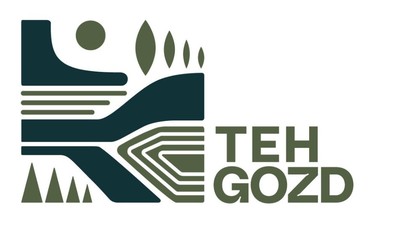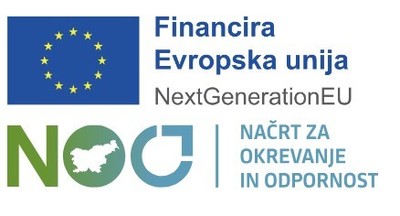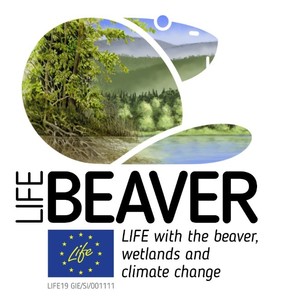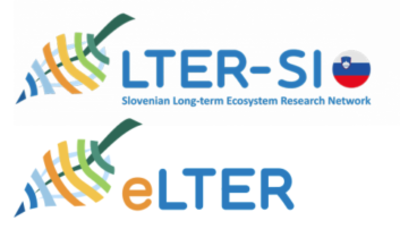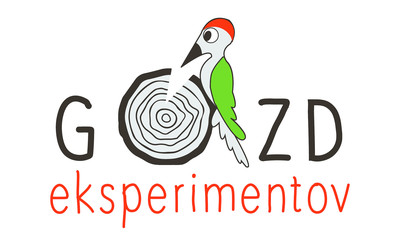
Active projects
Project archiveGIFT - Green Infrastructure for Forest and Trees
The Green Infrastructure for Forest and Trees (GIFT) Project, funded by the Interreg Europe financial mechanism, represents a collaborative effort involving 10 partner institutions from 9 European countries. The project aims to empower and involve the crucial role of green infrastructure, particularly forests and trees, in contemporary regional and urban development, environmental and biodiversity conservation, agricultural, landscape, forestry and other legislation and strategies.
Interreg
Department of Forest Physiology and Genetics
Duration: 01.03.2023 - 31.05.2027
FOREST4EU – European innovation partnership network promoting operational group dedicated to forestry and agroforestry
FOREST4EU is a Horizon Europe project aiming at connecting existing Operational Groups (OGs) from different countries around Europe, to favour the transfer of knowledge and best practices between experts in this field. The main goal is to develop a European multi-actor network to promote and disseminate best practices related to the innovation of national forest and agroforestry among EU countries.
Horizon Europe
Department for forest Technique and Economics
Duration: 01.01.2023 - 31.12.2025
OptFORESTS
OptFORESTS, a Horizon Europe project financed by the EU, will support the protection and sustainable use of forest genetic resources in Europe, by increasing cooperation and knowledge sharing to foster adaptation to climate change and biodiversity-supporting practices in forestry. The project will generate research outputs supporting the choice of more diverse FRM adapted to future climates, and inform assisted gene flow and migration, foster the sustainable use, adaptation and resilience of naturally-regenerated forests, develop methods to expand and diversify nursery production, analyse and develop nature-based solutions, tools and new cultural trajectories and demonstrate biodiversity restoration solutions for degraded forest ecosystems.
Horizon Europe
Department of Forest Physiology and Genetics
Duration: 01.11.2022 - 31.10.2027
Natural regeneration processes in beech forests after disturbance
This bilateral project is built upon the complementary expertise of the researchers from Slovenia and the Czech Republic and uses the existing experimental settings in Slovenia. The main objective of this project is to define the roles of mycorrhizal fungi, saprotrophic fungi and bacteria in forest soils with the aid of experiments that manipulate their relative abundances by cutting trees.
ARIS
Department of Forest Physiology and Genetics
Duration: 01.11.2022 - 31.10.2025
Determining the effectiveness of different approaches in the implementation of the forest order to prevent overpopulation of spruce beetles using the most effective pheromone preparation and traps
The project is investigating how different approaches to managing logging residues reduce the risk of spruce bark beetle overpopulation in surrounding forests. The research will be carried out at three sites in Slovenia.
ARRS CRP
Oddelek za varstvo gozdov
Duration: 01.10.2022 - 30.09.2025
The impact of climate change on avalanches in Slovenia
Based on data from recent decades, this project will study new correlations between geographical variables, such as weather factors, and avalanches. Their occurrence will be determined through monitoring at two sites and assessed according to the current weather and snow-cover characteristics measured.
ARIS
Department of Forest Yield and Silviculture
Duration: 01.10.2022 - 30.09.2025
Oaks for future forests and forestry in Slovenia: Quercus robur versus Quercus petraea (J4-4541)
The project focuses on two temperate, ecologically and economically important oak species in Slovenia: Quercus robur versus Quercus petraea; their future distribution and growth potential.
ARIS
Department of Forest Physiology and Genetics
Duration: 01.10.2022 - 30.09.2025
Drafting of the platform and guidelines for forest management in torrential forest areas (CRP V4-2212)
Forest management in torrential areas should pay special attention to soil erosion and erosion control measures, both in terms of construction and maintenance of forest infrastructure and silvicultural measures. This project aims to fill the gaps in forest management in torrential areas.
ARRS CRP
Department of Forest Ecology
Duration: 01.10.2022 - 30.09.2025
Climate changes and ectomycorrhizal fungi - how far can we go with an assisted migration of truffles?
The project “Climate changes and ectomycorrhizal fungi - how far can we go with an assisted migration of truffles?” aims to connect knowledge of forestry, agriculture, climate changes and fungi cultivation, for a better understanding of responses, interactions with environment, and distribution of ectomycorrhizal fungi (truffles) as a result of changes in climate on soils and below-ground parts of plants in symbiosis.
ARIS
Department of Forest Physiology and Genetics
Duration: 01.10.2022 - 30.09.2025
Planning of technologies and quality assessment of forest operations in support of the bio-economy
The main objective of the project is to provide guidelines for spatial planning of timber extraction technologies and quality assessment of forest operations (tending work and regular felling) and construction of forest roads.
ARRS CRP
Department for forest Technique and Economics
Duration: 01.10.2022 - 30.09.2025
Support for improved management of the interactions between large herbivores and forests
The main objective of the proposed project is to consolidate the existing and provide additional necessary knowledge to cover gaps and, above all, transfer it to planning of wildlife management and silvicultural planning, all with the aim of improving the management of forest-wildlife relations and wildlife and forests in general.
ARRS CRP
Department of Forest Ecology
Duration: 01.10.2022 - 30.09.2025
eForestry
In the forestry sector, eForestry will upgrade infrastructure and basic resources, connect stakeholders in the forest process through digitalization and centralization of processes, and ensure user-friendly digital public services. The digital transformation will thus ensure the rationalization of administrative and inspection tasks and, above all, more efficient and faster customer service.
Recovery and Resilience Plan
Department for forest Technique and Economics
Duration: 01.07.2022 - 31.12.2026
PathFinder - Towards an Integrated Consistent European LULUCF Monitoring and Policy Pathway Assessment Framework
It is often not the knowledge that hinders change but the acceptance of the knowledge by stakeholders and uptake in transformative policies. PathFinder aims to demonstrate a mobilization of scientific approaches in co-design of forest management pathways that navigate these trade-offs to identify the decisions and policies that act as steppingstones in achieving these pathways.
Horizon Europe
Department for Forest and Landscape Planning and Monitoring
Duration: 01.03.2022 - 28.02.2025
Forest-wood value chain and climate change: transition to circular bioeconomy (P4-0430)
The overall objective of this research programme is to identify current challenges along the entire forest-based value chain and to search for optimal solutions by using all available knowledge and resources (laboratories and databases).
ARIS
Department of Forest Physiology and Genetics
Duration: 01.01.2022 - 31.12.2027
FORGENIUS
FORGENIUS is a H2020 project, funded by the EU, which will give an insight into the diversity of European forests and their resilience to climate change. The project uses state-of-the-art technology and knowledge in plant and evolutionary biology, ecology, remote-sensing, genomics, genetics, modelling, and forestry. It aims to upgrade the current European Information System on Forest Genetic Resources (EUFGIS) platform, by adding new types of data and information on the Genetic Conservation Units, allowing predictions of the fate of European forests in the short, medium, and long term.
Horizon2020
Department of Forest Physiology and Genetics
Duration: 01.01.2021 - 31.12.2025
LIFE BEAVER - LIFE with the beaver, wetlands and climate change
In the project, researchers from the Slovenian Forestry Institute will assess the value of ecosystem services provided by beavers and create a model of the potential spread of the beaver population. It is high time that people adapt to the changes brought to aquatic environments by beavers, and not the other way around. Therefore, the LIFE BEAVER project welcomes the return of the beaver. The partners will make every effort to ensure that residents living near water bodies in Slovenia and Croatia accept the return of the beaver.
LIFE
Department for Forest and Landscape Planning and Monitoring
Duration: 01.09.2020 - 30.04.2025
LIFE IP CARE4CLIMATE
The project is based on the connections between sustainable mobility, energy efficiency, sustainable land use and practices for the transition to a low-carbon economy. It strives to help solve one of the most pressing issues of modern societies — the climate crisis. The Slovenian Forestry Institute (SFI) is responsible for the activities relating to the land use, land-use change, and forestry (LULUCF) sector, establishing the methodology for monitoring carbon stock at the national level for all land uses, the implementation of pilot projects, building professional and governance capacities and awareness-raising.
LIFE
Department for Forest and Landscape Planning and Monitoring
Duration: 01.01.2019 - 31.12.2026
LIFE-IP NATURA.SI - LIFE Integrated Project for Enhanced Management of Natura 2000 in Slovenia
In the project, SFI will analyze and create habitat suitability models for seven selected Natura 2000 forest species (2 owl species and 5 beetle species) in collaboration with the National Institute of Biology. We will also analyze the state of three selected Natura 2000 moss species (analyzing major knowledge gaps for the three selected moss species, preparing proposals to address these gaps, and conducting a survey of the coverage of target moss species with the existing national monitoring scheme)
LIFE
Department of Forest Ecology
Duration: 01.09.2018 - 31.12.2026
eLTER – INTEGRATED EUROPEAN LONG-TERM ECOSYSTEM, CRITICAL ZONE & SOCIO-ECOLOGICAL RESEARCH INFRASTRUCTURE
LTER-Slovenia brings together 16 highly equipped research sites where long-term socio-ecological research is conducted at two underground karst sites, two freshwater lakes, 11 terrestrial forest platforms and one marine site. These ecosystem research sites support, enhance and promote national and international multi- and interdisciplinary investigations of long-term biodiversity and ecosystem processes at different spatial and temporal scales. LTER-Slovenia has been on the national research infrastructure roadmap since 2016.
Department of Forest Ecology
Duration: 01.01.2015 - 31.01.2025
The Forest of Experiments
An activity that translates many scientific research findings and expert conclusions into language accessible to the public. Our educational work is conducted by researchers from various fields following the principles and methods of forest pedagogy. Forest pedagogy is an approach to environmental education connected with the forest and our relationship with it. We offer training for educators, the interested public, and youth. We participate in the development of environmental education in Slovenia and are active internationally.
Department for Forest and Landscape Planning and Monitoring
Duration: 18.07.2014 - 18.07.2027
- 1
- 2









